Greenhouse Gas Emissions Reporting and Registration System in Israel: Summary of Reports for 2019

63 companies and organizations submitted their reports to the Voluntary GHG Registry in 2019 to the Ministry of Environmental Protection. Each of the reporting companies, enclosed a signed statement regarding the reliability of the data, as required by the Reporting and Registration System, which was developed by SNI in cooperation with the Ministry of Environmental […]
Review of the Impact of Natural Gas Based Transportation Fuels on Air Quality
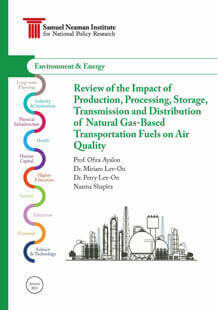
As Israel attempts to diversify its energy sources, its use of natural gas is rapidly expanding, taking advantage of discovered resources off Israel’s shores in the Eastern Mediterranean. Due to expansion of offshore operations and broader introduction of natural gas into the Israeli economy, emissions of associated air pollutants along with other potential environmental and […]
Towards a reform of the tax system
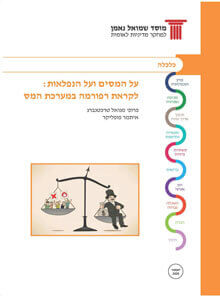
Israel is facing very large fiscal needs as a result of the COVID-19 crisis and the need to upgrade vital public services after a long period of neglect, and therefore tax increases will be inevitable in the near future. At the same time the many flaws of the Israeli tax system call for urgent reform, […]
Crossing the Valley of Death Between Academic Research and Effective Policy
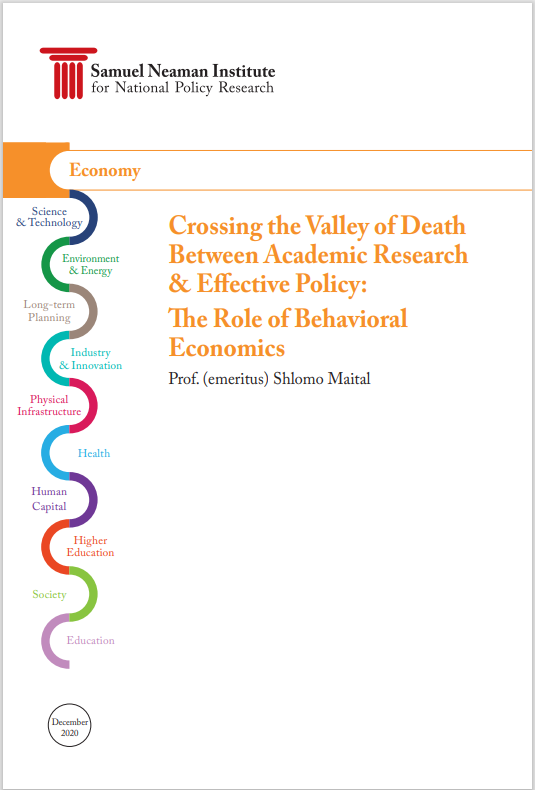
Why does much valuable academic research fail to impact public policy? I argue that the way forward to relevance and credibility for economics lies through RCT’s – randomized controlled trials, in which the methodology of scientific experimentation joins with the theoretical insights of behavioral economics. By joining the insights of behavioral economics with the rigor […]
Protective layers in the war on Corona: A realistic model for handling pandemics
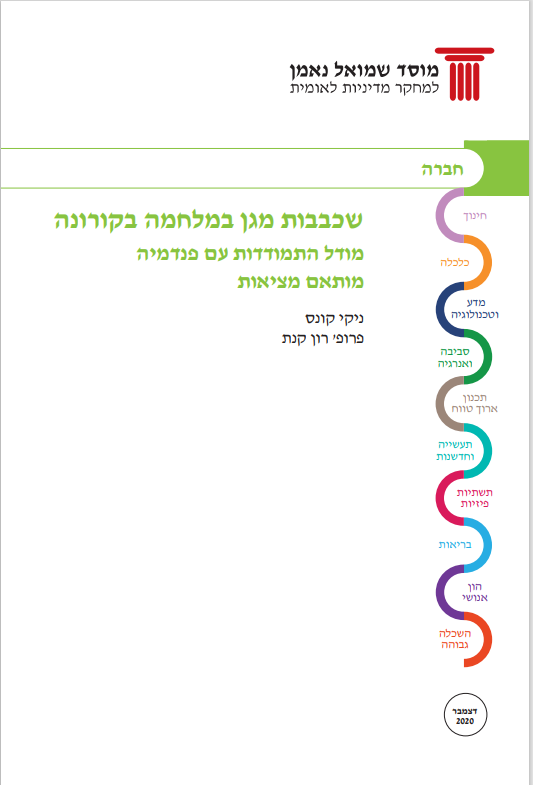
The way the Covid pandemic has been addressed in Israel has raised significant issues regarding the decision-making process at the national, community and personal level. This project aims at addressing such challenges at the conceptual level. We propose a three tier approach addressing the national, community and personal level.
Profiling Online User Behavior via Triangulated Datasets: Evidence from Survey Data and Digital Trace Data
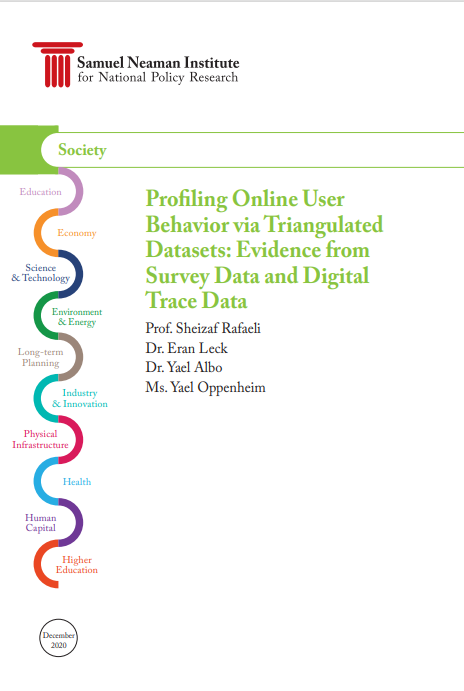
The research is a part of the Israel-Slovenia bilateral project. The research was funded by the Ministry of Science and Technology and the Slovenian Research Agency and took place from October 1, 2018 to September 30, 2020, with the participation of the Centre for Social Informatics (CSI) at the University of Ljubljana, Slovenia and the Samuel Neaman Institute […]
National land ownership and housing prices in Israel
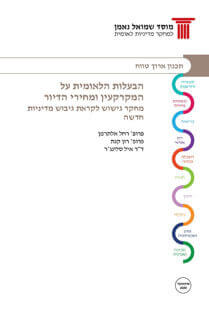
Despite the central place that Israel’s housing policy has taken since the 2011 mass protests, and the various policy alternatives that have been considered, one issue has never been placed for public awareness and debate: The fact that Israel – alone among all the members of the OECD – has a land tenure system with […]
Medical research in Israel a wake up call for the government before the next crisis
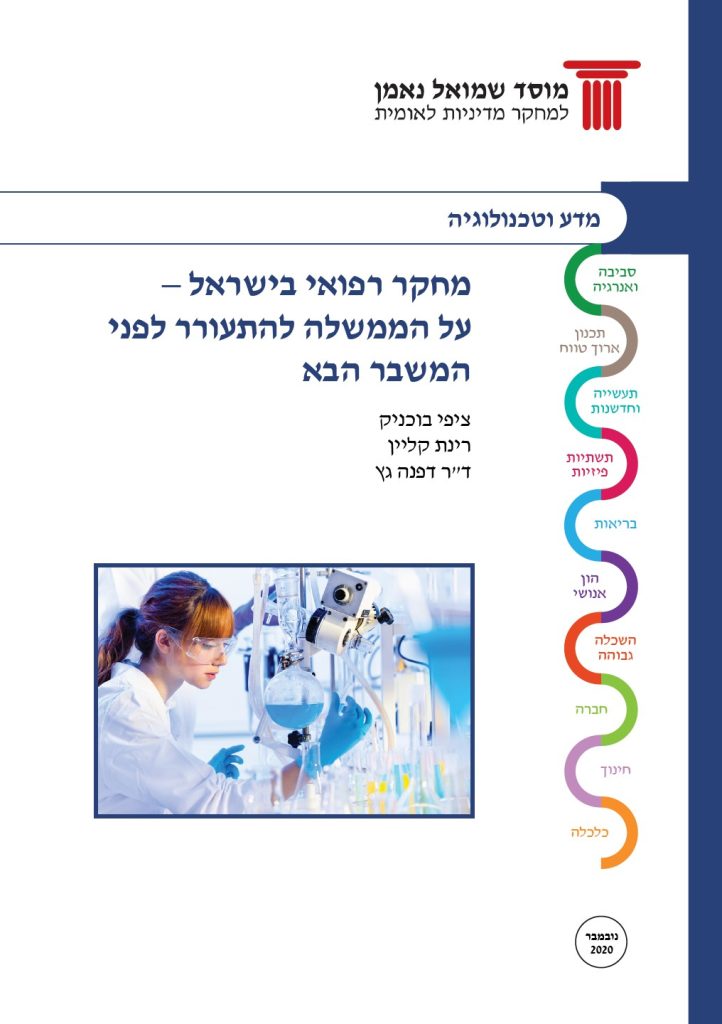
An analysis of CBS and OECD data on government investments in medical R&D reveals a gloomy picture: only 0.5% of government R&D investments are in the health care sector; the past five years have seen a 20% decline in hospital research funding compared to other OECD countries, Israel is ranked lower in R&D health investments. […]
Industrial symbiosis – barriers for implementation in Israel
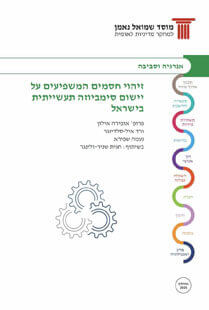
Industrial symbiosis is defined as wastes or by‐products of an industry or industrial process that used as a resource or raw materials for another. The purpose of industrial symbiosis is to create loops of materials while minimising the leakage of natural resources as water, energy and waste – demonstrating some key parts of a circular economy, at a local scale […]
Build Back Better: Toward a Visual Strategic Plan for Successful Emergence from COVID-19 – The Case of Israel Part III
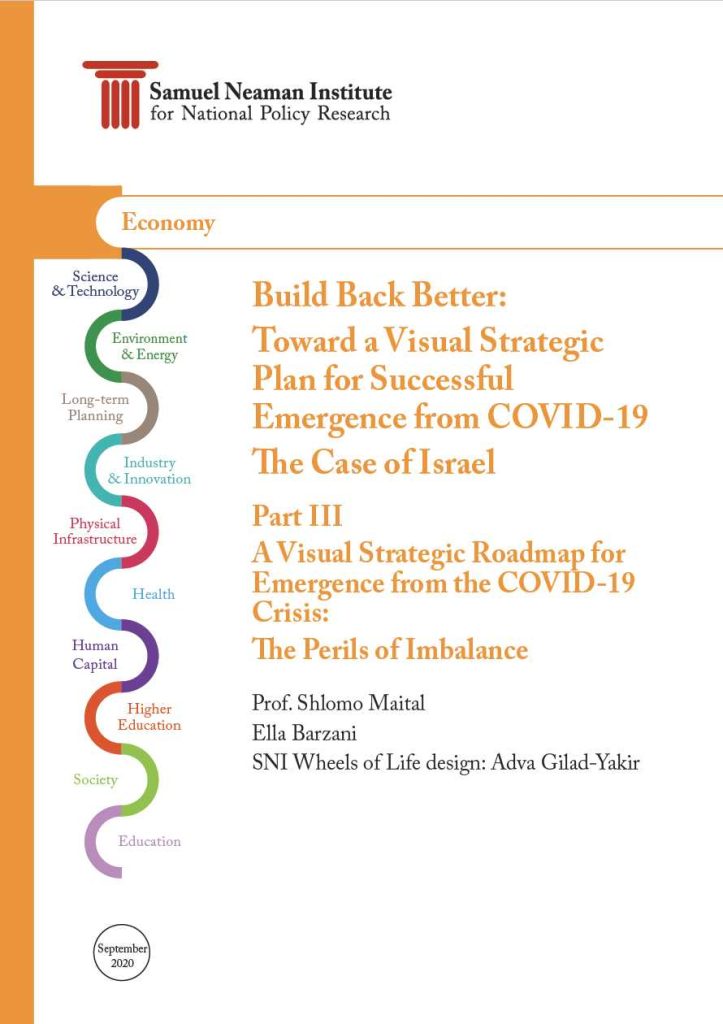
This report is Part III of a three-part research paper, Build Back Better: Toward A Visual Strategic Plan for Successful Emergence from COVID-19 – the Case of Israel. In this essay we propose a strategic long-run plan for Israel, as it emerges from the COVID-19 pandemic. employing a visual approach for benchmarking economic, social and […]
